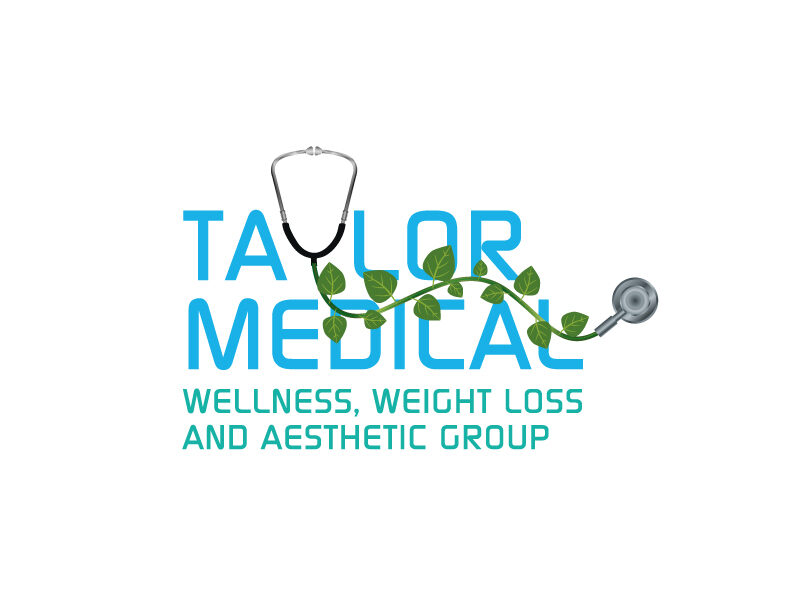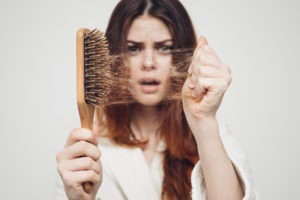Hair Loss Treatments
Hair loss, also known as alopecia, is a condition caused by the disruption of the body’s cycle of hair production. The scalp has over 100,000 hairs that cycle through periods of growing, resting, falling out, and regenerating.
A hair follicle growth cycle consists of three phases. During the anagen phase, which can last for years, hair grows robustly. During the catagen phase, which lasts about ten days, hair stops growing and separates from its follicle. During the telogen phase, the follicle rests for two or three months, and then the hair falls out. Shortly afterward, a new anagen phase begins as a new hair grows in the same follicle. Most people normally lose between 50 to 100 hairs per day.
Hair may begin to fall out more quickly than it is regenerated, leading to symptoms such as a receding hairline, hair falling out in patches, or overall thinning if the hair growth cycle is disrupted, or a hair follicle is damaged.
There are many reasons for hair loss in men and women. Common causes include hormone imbalances, hypothyroidism, hyperthyroidism, iron anemia, protein deficiency, rapid weight loss, low vitamin D levels, B vitamin deficiencies, autoimmune diseases Celiac Disease, stress, inflammation, fungal injections, prescription drugs, chemotherapy, radiation, hair braiding, and chemical hair treatments. Hair loss can occur at any age but is most likely around age 40 when the body’s hormone levels began to decline. Pre-menopausal and menopausal women are more likely to experience hair loss due to hormone imbalances.
Prescription drugs are a common cause of hair loss since millions of Americans are prescribed drugs each year.
Here are some of the types of drugs are thought to cause hair loss, including:
Antibiotics
Cholesterol-lowering drugs
Anti-depressants
Steroids for autoimmune diseases
Birth control pills
Weight loss drugs
Anti-clotting medications
Anticonvulsants
Anti-hypertensives i.e. beta-blockers and ACE inhibitors
Nonsteroidal anti-inflammatory drugs i.e. Motrin
Mood stabilizers i.e. Lithium
Thyroid medication
Antacids
Gout Medication
Anti-arrhythmia medication
Call 678-443-4000 today for an appointment!
Most Common Type of Hair Loss
Androgenic Alopecia
Androgenetic alopecia is the most common type of hair loss, affecting more than 50 million men and 30 million women in America. It affects many people at some point in their lives and can occur as early as late teens or early twenties. It is caused when enzymes in the body convert testosterone into a metabolite which has the effect of shrinking the hair follicles. Androgenetic alopecia can be passed down through the genes on either the paternal or maternal side.
Male Pattern Baldness
About two out of three men experience hair loss by age 60, and most of the time it’s due to male pattern baldness. This type of hair loss, caused by a combo of genes and male sex hormones, usually follows a classic pattern in which the hair recedes at the temples, leaving an M-shaped hairline. In men, hair loss can begin any time after puberty and progress over the course of years or decades. It starts above the temples and continues around the perimeter and the top of the head, often leaving a ring of hair along the bottom of the scalp. Many men with male pattern hair loss eventually become bald.
Female Pattern Baldness
Female-pattern hair loss is basically the female version of male pattern baldness. In women, the hair slowly thins all over the scalp, but the hairline usually doesn’t recede. Many women experience this type of hair loss as a natural part of aging, although hair loss may begin any time after puberty. Female pattern hair loss can cause hair to thin dramatically, but only rarely does it lead to baldness.
Hair Loss Solutions
Taylor Medical Wellness, Weight Loss and Aesthetic Group provides non-invasive, non-surgical solutions for hair restoration. Our comprehensive treatment begins with a lab analysis i.e. hormone and blood testing to identify reversible causes of baldness. Our doctors will take a thorough medical evaluation to identify common causes of hair loss to get to the root of your hair loss.*
Our hair growth solutions include PRP injections, mesotherapy of nutrients vital for hair growth, microneedling to stimulate hair follicle growth, peptide therapy, topical medications and nutritional supplement packed with protein and vitamins necessary for hair growth. *
*Results May Vary
Call 678-443-4000 today for an appointment!
PRP Hair loss Treatment

Stop hair loss today!
Platelet Rich Plasma (PRP Therapy) is derived by extracting blood during a venous blood drawn and then using special technology to spin and separate the blood into a platelet-rich plasma layer. PRP which contains growth factors is injected into the scalp using a very small needle that stimulates the growth and rejuvenation of new cells by waking up dormant hair follicles. PRP therapy has been used for other medical conditions with great success and is now being used for hair rejuvenation and restoration. It strengthens existing hair while reducing hair loss and increasing the number of hair cells. Both male and female patients with thinning hair regardless of the cause can benefit from the treatment. We combine our PRP injection with microneedling and progesterone for optimal results. The procedure takes about ninety minutes and a topical analgesics or local injection block may be used to number the scalp before injecting the PRP. A series of three treatments one month apart is recommended. The cost per treatment varies based on the size and severity of the hair loss but start at $600 and may go up to $1500 a treatment.*
*Results may vary
The patient usually begins to see results in one to six months with the maximum results seen in one year. The results usually last from one to two years, therefore, maintenance treatments every three to four months after the first year are recommended depending on the severity of your hair loss. Hormone testing and treatment may be recommended especially in post-menopausal and older men since hormones can affect hair growth and loss.*
Advantages of PRP Therapy for hair loss*:
- Non-surgical and non-invasive
- Can help regrow and thickens hair on scalp, eyebrows, mustache and anywhere that hair follicles grow
- No downtime
- No bandages or scars
- Help thicken hair
- Can help regenerate new and dominant hair follicles
- Improves hair health, texture, growth and strength
*Results may vary
For More Information About Taylor Medical Group Services Click Here
Wellness and Weight Loss
Cosmetic Services
IV Therapy
GAINSWave ED Treatment
Vaginal/Bladder Rejuvenation
BHRT Pellets
Menopause
Perimenopause
Strawberry Lipo
Holistic Addiction Treatment
Salivary Testing
Hormones
Mesotherapy

